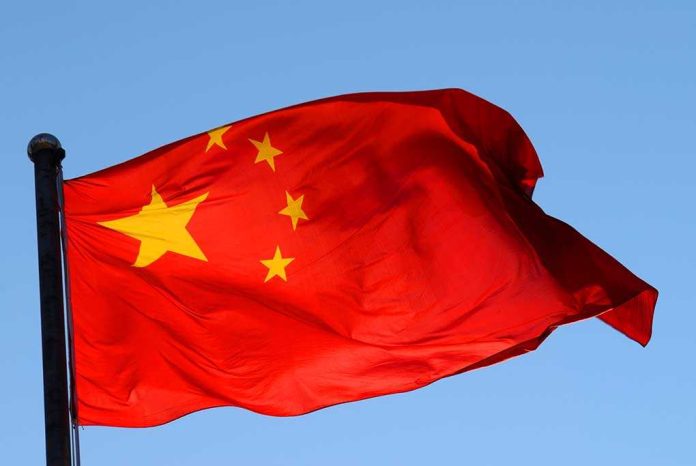
A police investigation into conservatives tearing a Chinese flag banner has sparked tensions over free speech and diplomatic decorum.
Story Highlights
- South Korean police investigate conservative group for tearing a Chinese flag banner.
- Incident occurred during a rally near the Chinese Embassy in Seoul.
- Investigation centers on violation of Article 108 of Korea’s Criminal Act.
- Potential diplomatic strain between South Korea and China.
Police Investigation into Flag Incident
Seoul’s Namdaemun Police have initiated a probe into a conservative civic group known as Jayu Daehak or “Free University.” The investigation follows an incident on July 22, 2025, where the group allegedly tore a Chinese national flag banner during a rally near the Chinese Embassy. The banner featured images of Chinese President Xi Jinping and Ambassador Dai Bing. Authorities cite Article 108 of Korea’s Criminal Act, which criminalizes insulting or defaming a foreign envoy.
The rally, organized by Free University, focused on condemning alleged election fraud. The incident’s timing and location, near the Chinese Embassy, have added a layer of diplomatic sensitivity to the investigation. The police have summoned group representatives to appear for questioning on August 11, 2025.
Implications of Article 108
Article 108 of Korea’s Criminal Act is seldom invoked, particularly in protest actions involving foreign symbols. This law aims to protect foreign envoys’ dignity, with penalties reaching up to three years’ imprisonment. The rare application of this legal provision has raised questions about the balance between free expression and diplomatic protocol.
Chinese state media have reportedly highlighted and welcomed the investigation, aligning with their typical narrative of protecting national symbols abroad. This case has the potential to influence future diplomatic interactions and protest norms near embassies.
The probe underscores ongoing tensions in South Korea, where conservative groups have been vocal in their opposition to perceived foreign influence and alleged election irregularities. The legal risks for those involved in the rally highlight the fine line between political expression and legal boundaries.
Potential Long-term Consequences
The current investigation could set a precedent for stricter enforcement of laws protecting foreign missions from perceived insults. This may affect how protests are conducted near diplomatic facilities in the future. Additionally, the case could have broader implications for South Korea’s domestic politics, particularly as it intersects with debates over freedom of speech and foreign policy.
South Korea Launches Police Probe Against Conservatives for Tearing Chinese Flag https://t.co/n5P5tioHKN via @BreitbartNews
— MD Morgan (@MDMorgan2) August 12, 2025
As the investigation progresses, conservative activists and legal experts are likely to scrutinize its impact on civil liberties and diplomatic relations. The outcome could further shape the discourse around South Korea’s approach to international diplomacy and internal political dynamics.
Sources:
AFP Fact Check: Viral claims about Chinese involvement in South Korean protests debunked
AFP Fact Check: Chinese-character flags at protests not linked to CCP/PLA units




